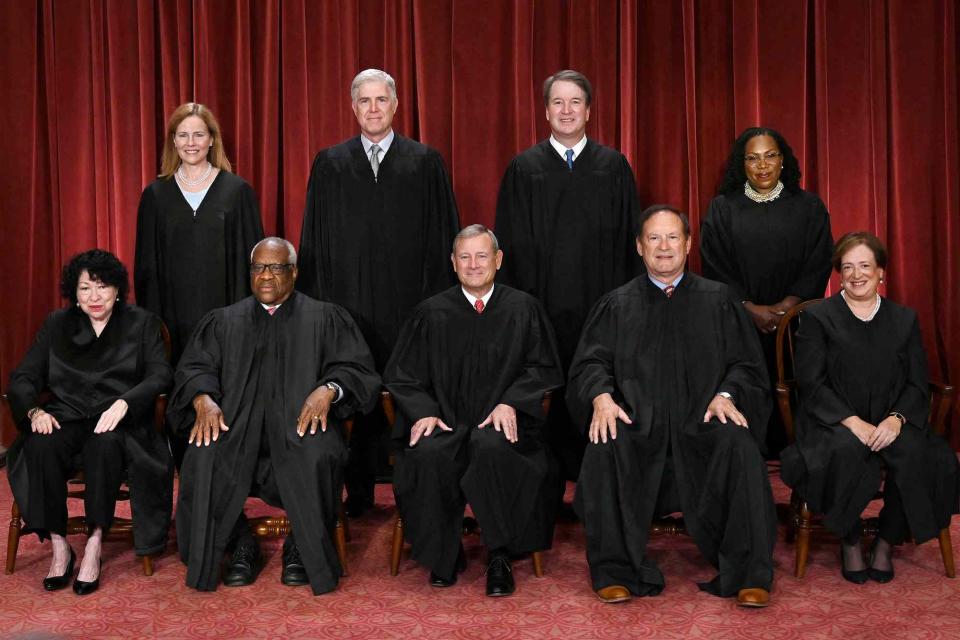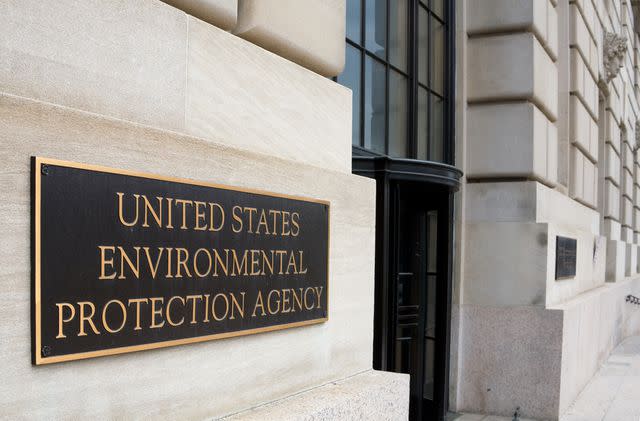Supreme Court Overturns 40-Year Precedent You Didn't Know Existed: 'You Could See Things Descend into Chaos'
The "Chevron deference" has long been the backbone of how corporations are regulated. The new ruling strips federal agencies of their power to determine what's best for Americans

A new Supreme Court decision could have sweeping implications over federal agencies' roles in clarifying the very laws they are meant to enforce, effectively allowing judges in lower federal courts to craft policy for agencies that govern everything from environmental protection to human health.
On Friday, June 28, the court ruled 6-3 in favor of overturning the "Chevron deference," a backbone principle for how the federal government keeps corporations in check. Chevron is the practice by which federal courts defer to federal agencies when sorting out ambiguities in a law.
The three liberal justices dissented.
Related: Supreme Court Protects Access to Abortion Pill in Surprise Ruling
Anthony Moffa, an associate professor of law at the University of Maine, explains to PEOPLE that the Chevron deference was established in 1984 by the Supreme Court’s ruling in Chevron U.S.A. v. Natural Resources Defense Council. He says the doctrine applies to the latitude federal judges give agencies like the EPA over how to interpret a statute when a dispute arises.
But how agencies like the EPA or the Department of Education operate is sometimes in flux. That's because, as Moffa explains, most agencies are operating "under laws that are not perfectly clear."
"Using environmental law as an example, most statues use words like 'pollutant' or 'human health' or 'environmental health' or even words as seemingly straightforward as ‘water,' " he says.
But the way those words are defined might differ between a large corporation that doesn't want their factory runoff to be regulated, and the agency meant to enforce human health.
In those cases, when a company or person takes a federal agency to court, the court sides with the agency itself.
"Congress doesn't always write statues that are hyper-specific — they don't have the time, or the staff, or the expertise," Moffa says. "The way that our federal government functions depends on entrusting expert agencies with the ability to take reasonable actions."
Without the Chevron deference, experts warn that judges — and not federal agencies themselves — could determine certain environmental regulations.
"If you uproot Chevron, what you’re doing is ... saying the agency tasked with doing something — let's say, controlling pollution, or improving K-12 education — they can go ahead and do what they think is best, but if someone doesn't like what they did, and they bring the agency to court, there’s no assurance the court will side with the agency," says Moffa.
Moffa continues: "[Undoing Chevron] is destabilizing to how we do government ... You would run into a lot of problems, as most statues are relatively broad in the tasks they give to agencies."

Skyhobo / Getty Images
Offering up a specific example of how the undoing of Chevron could play out, Moffa explains how the fuel economy of vehicles sold in the U.S. is currently regulated, by the EPA and the Department of Transportation.
"One of the justifications in the law that empowers those agencies [to regulate fuel economy] has to do with air pollution," Moffa explains. "The particular pollutant of concern is carbon dioxide, or greenhouse gases. The EPA has said carbon dioxide is a pollutant, and the Supreme Court endorsed that reading of the Clean Air Act. Without Chevron deference, you might have a higher chance of a rogue federal court who says, 'We don’t think this is a pollutant.' "
As a result, Moffa warns, harmful chemicals could be subject to less stringent regulation, and corporations could determine how certain laws are enforced, rather than the agencies themselves. Consumers could suffer as a result.
"If you buy a new car today, it’s much more fuel efficient than it was 10 years ago," Moffa says. "The reason for that is environmental regulation."
Never miss a story — sign up for PEOPLE's free daily newsletter to stay up-to-date on the best of what PEOPLE has to offer.
But some corporations could also be hurt, he adds.
"The auto-makers have depended on those regulations, too. When the Trump administration threatened to roll back some of those regulations, a lot of auto makers were upset because they have billions invested in research and development and technology to improve fuel economy, based on the certainty that those regulations would be in place."
Moffa continues: "The legal argument for undoing Chevron is that courts are the only ones who get to decide what the law is. But the Constitution says that Congress passes laws, which are then signed by president. Nowhere in the Constitution does it describe the regulatory state we have now. That is a creation of Congress, which has passed statues empowering agencies to make rules."
"Removing the Chevron deference creates a situation where you could see things descend into chaos," he says. "It’s kind of unimaginable what the regulatory space looks like in a world where administrators and regulators can't be confident that their reasonable interpretations of their mandates are respected by courts."
For more People news, make sure to sign up for our newsletter!
Read the original article on People.


